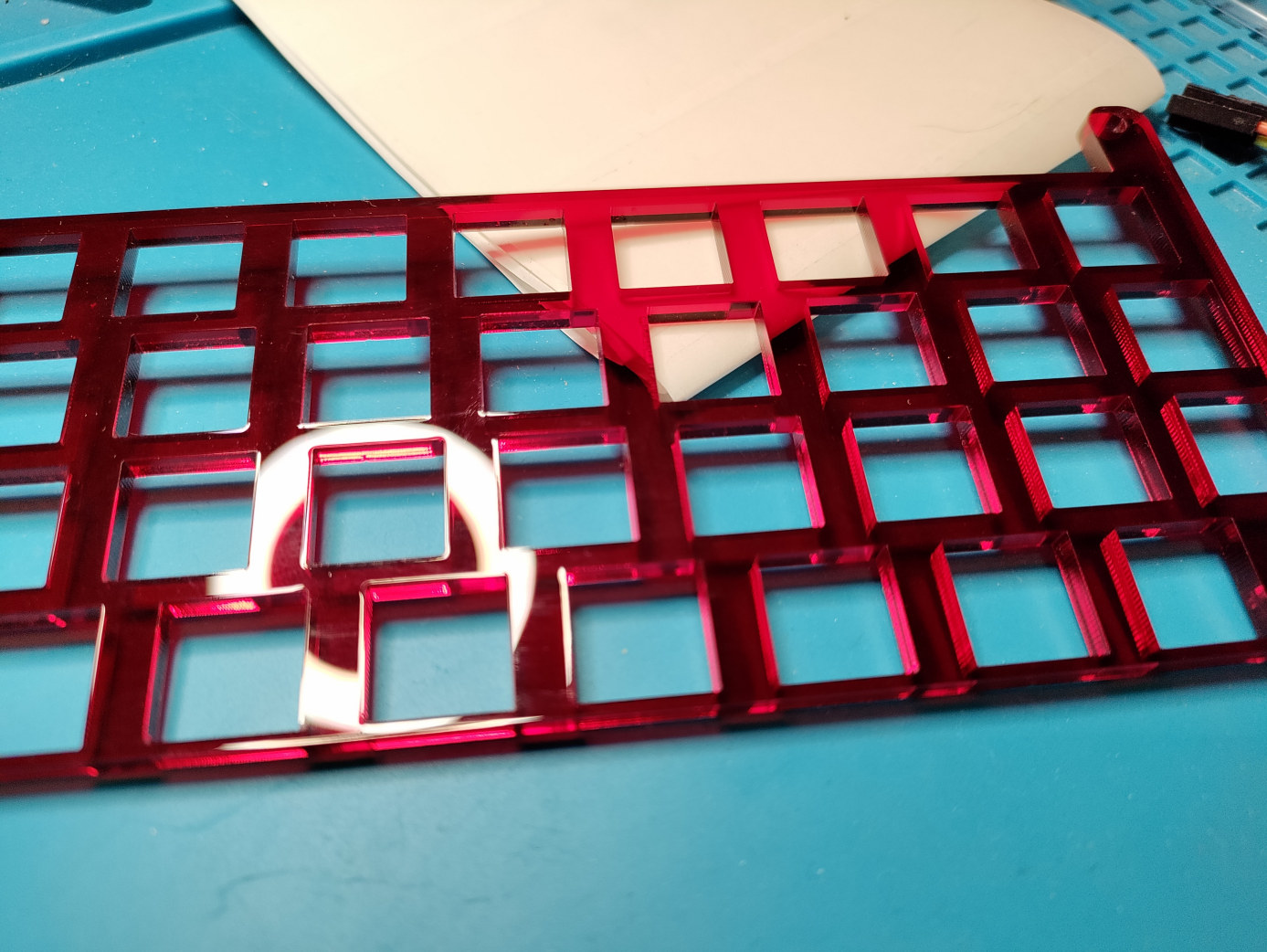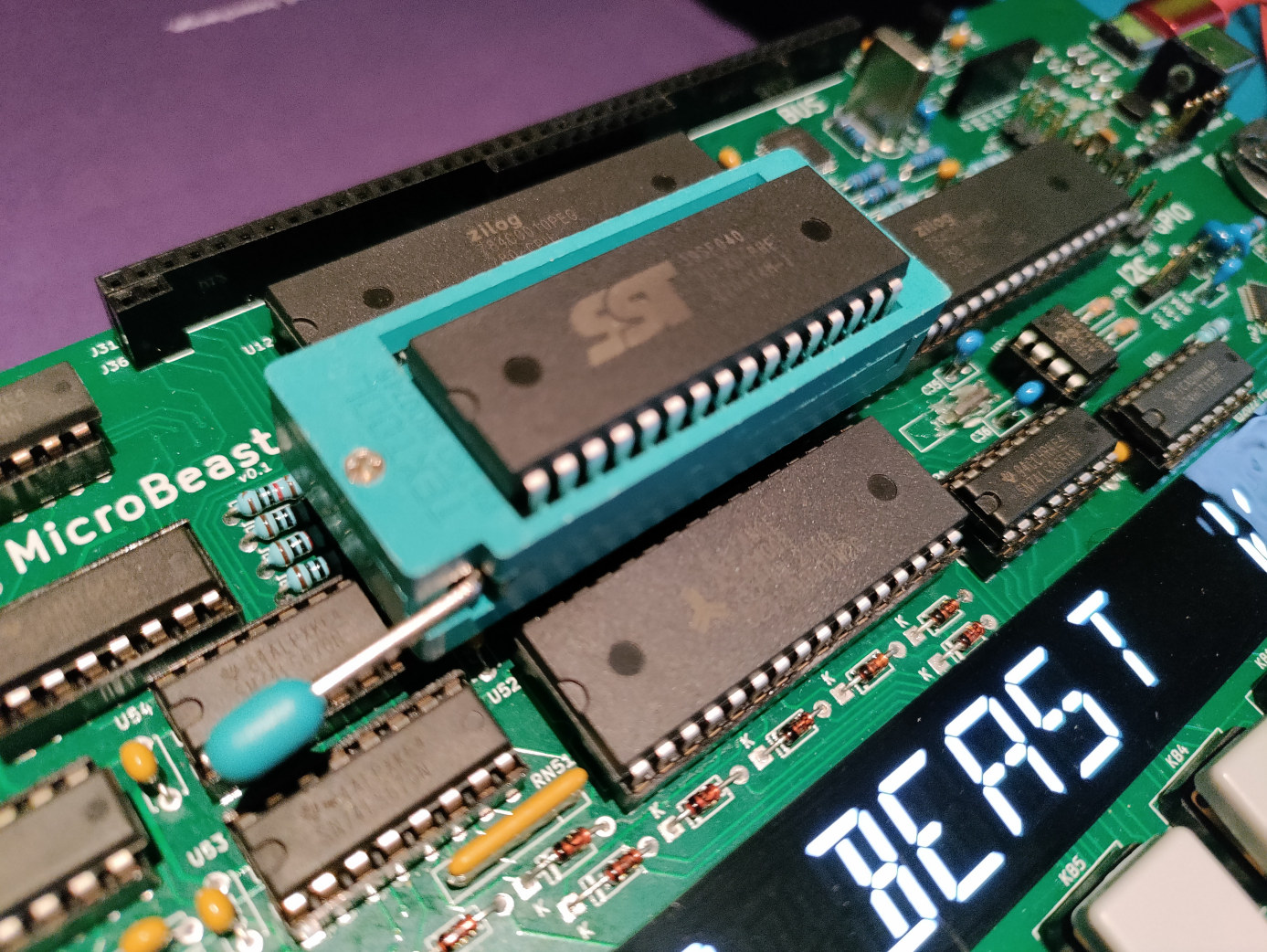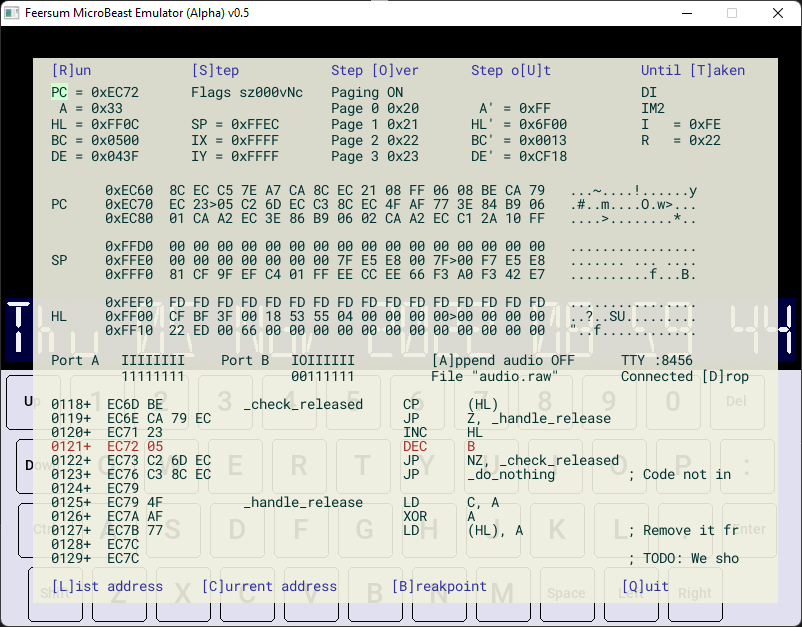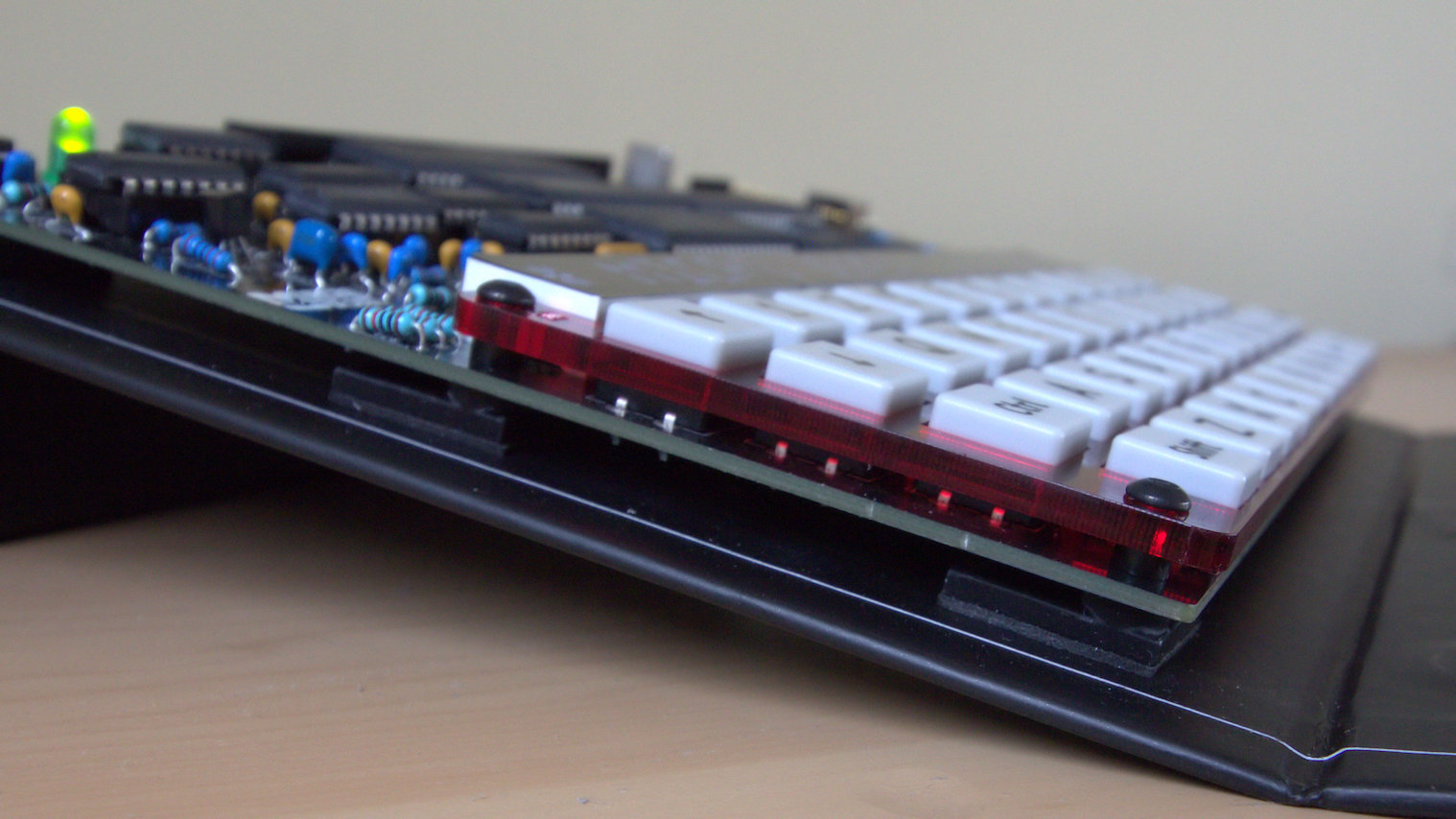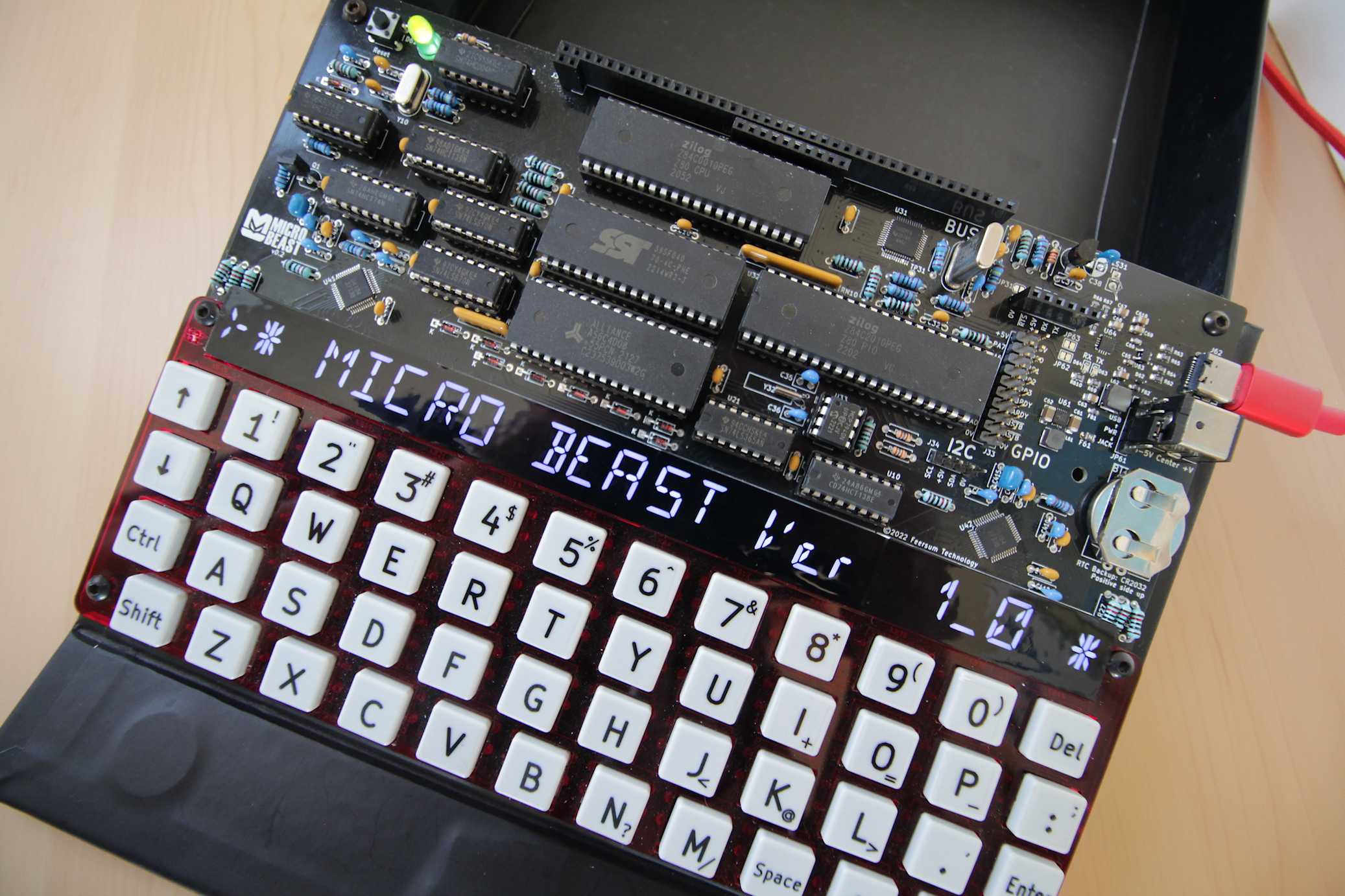Goals
Hobbyist projects are by their nature very personal things. They're not made to suit some big commercial goal, or produce the perfect device but to fit the current desires and capabilities of the people involved. MicroBeast is no different.
So rather than claim this is the best ever computer, this is a list of the goals that drove the design. If these matter to you, MicroBeast could be your next computer!
- A complete, self-contained 8-bit computer kit that can be built without specialist tools.
- Genuine 8-bit design, don't cheat with "support" processors that are more powerful than the main CPU.
- All development, from applications to firmware, can be done without expensive or obscure tools.
- Use standard connectors. No odd or outdated adapters adding to clutter.
- Use only currently manufactured and available components. 8 bit shouldn't mean obsolete.
- Can be expanded, customised and hacked - with full access to the CPU bus.
- Intentional, honest design - make choices, not excuses.
- Keep costs down, but don't cut corners.
The machine that inspired MicroBeast, the MicroProfessor II was part of the big movement in the early 80's away from one-off designs that enthusiasts might struggle to replicate, towards 'off the shelf' machines that were designed to be convenient and consistent for hobbyists.
Therefore the primary goal in designing MicroBeast is to create a kit that is self-contained and easy to build and use. That means all components included, from nuts and bolts to base firmware. It means avoiding adding to the clutter of unique cables, adapters and power supplies that seem to come with many hobby kits. Even the choice of an inbuilt keyboard saves relying on a PS/2 keyboard connector that manages both to be obsolete and from a completely different period from 8-bit computing. It also means that all of the parts that need to be assembled are standard through hole components. The only tools required are a soldering iron and an allen key.
In the quest to design a machine that's clean and simple, I've made a concious choice to use modern connectors and components where they make sense. The power supply and communications on MicroBeast are pre-installed surface mount parts. It features a USB-C connector and an efficient switching regulator so powering up couldn't be simpler. It also has a built in serial to USB adapter, so you can open a terminal on your PC and connect directly to the CPU. And for maximum flexibility, it's still possible to power MicroBeast through a separate barrel jack or use an FTDI adapter if you wish.
Above all, the goal is to solve the problems of building a great looking, unique kit during the design phase without limiting how it might be used, hacked and extended later on.
You can be the judge of whether or not I've succeeded.

